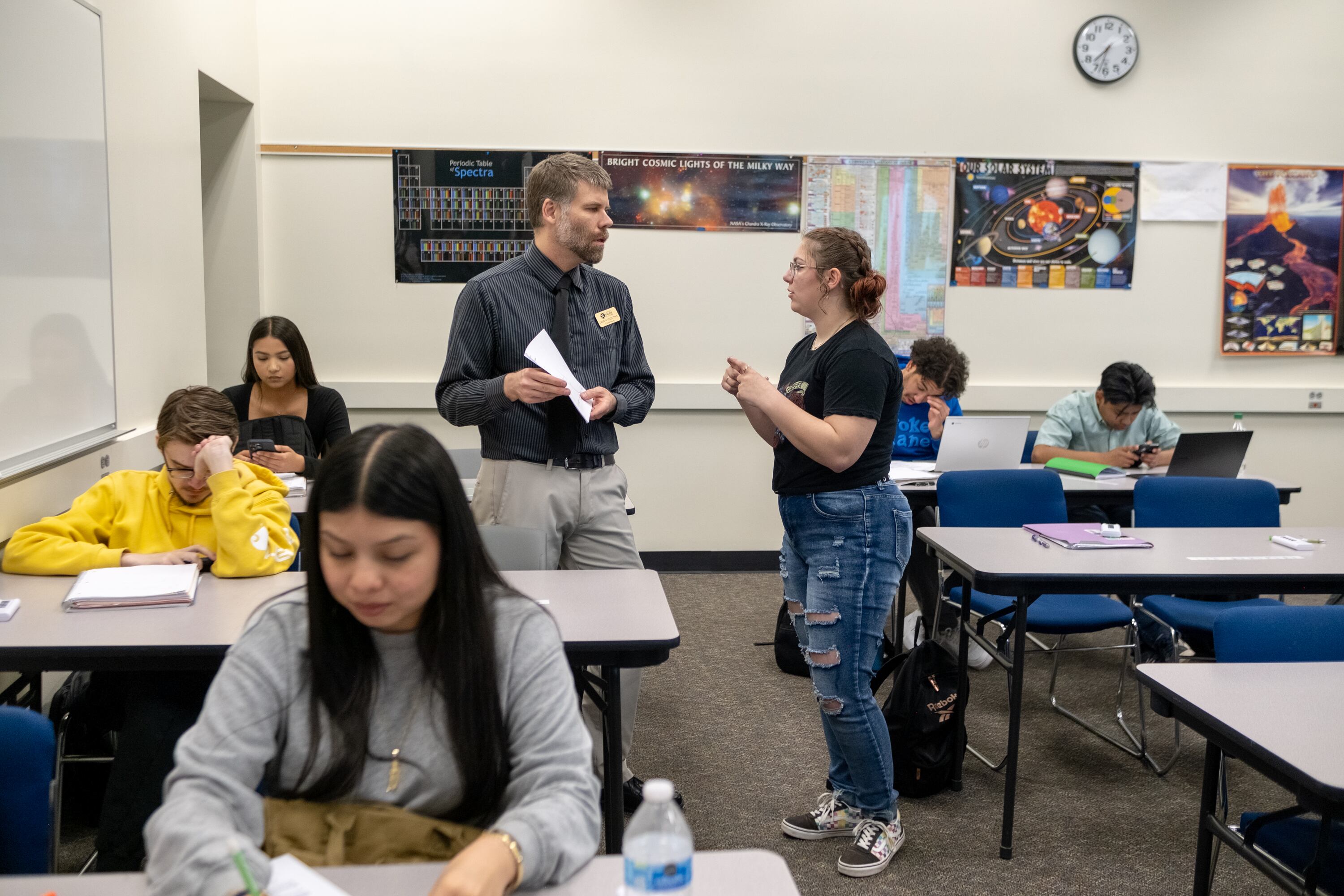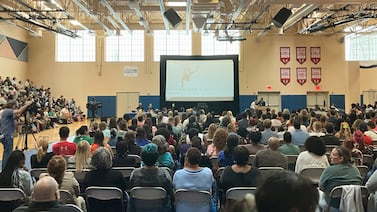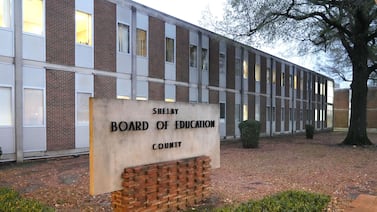Sign up for our free monthly newsletter Beyond High School to get the latest news about higher education in Colorado.
A Colorado program that allows students to stay in high school for a fifth year to take free college classes should be realigned to focus on low-income, at-risk students.
That’s just one of several recommendations in a new report meant to address problems with the state’s fragmented workforce readiness programs.
State lawmakers commissioned the report from the Denver-based Slalom Consulting firm, which will present its recommendations Wednesday to the Colorado State Board of Education.
The report calls for changes to the state system so it is easier for districts to offer students career education opportunities. For example, the report says the state can consolidate programs into one office and create a dedicated fund for counselors.
The proposed changes would support more districts in creating workforce programs with the goal of exposing students to career education that leads to college credit, classes that will lead to an industry certification, or on-the-job training. The recommendations also call for a new fund that would help districts hire more school counselors, including career coaches that support students’ aspirations.
Lawmakers commissioned the study after a larger report on the state of Colorado’s career education system — called the 1215 report — revealed a need for changes if the state wants to graduate more students with the skills for college and a career.
The 1215 report also outlined the need for further reports on specific workforce and college programs. Different programs are overseen by different departments despite having similar goals.
The Slalom report’s first recommendation calls for consolidating grants and programs into one overarching Postsecondary and Workforce Readiness fund. The change would bring various programs under one roof and make accessing them easier for districts.
The second recommendation says lawmakers should then create a categorical fund within the budget, or a line item specifically for certain programs or students, that would specifically pay for counselors, at a cost of $300.8 million a year. The money would support students as they explore career fields and college options.
Creating the categorical fund might be a challenge because historically these have been underfunded. In the short-term, lawmakers this year must also find budget cuts.
The report also recommends the state standardize tuition agreements to make it easier to account for program costs, and create reimbursement models for certain expenses like books and fees.
One notable facet of Slalom’s report is a call for the state to reassess the Accelerating Students through Concurrent Enrollment program, often called ASCENT.
ASCENT is one of the state’s first career education programs and grew in recent years after lawmakers lifted a student enrollment cap. The program provides students a fifth year of high school enrollment while they attend college, but doesn’t spell out what students will learn.
Newer programs have similar structures but clear workforce goals, such as one called TREP that helps students get into teaching, and another called P-Tech that is designed to get students into science, technology, engineering, or math careers.
In addition to questions about its requirements, ASCENT’s costs have also increased. The state has projected it will spend about $18 million on ASCENT in the 2024-25 budget year, more than quadruple what the program cost in 2022. Lawmakers also chose to place a cap back on the program.
Lawmakers could shift the $18 million for ASCENT to other programs, the report says.
Some school leaders say the program is crucial to keep students who have a more complicated educational journey on track to college and a career with good pay.
If lawmakers decide to keep ASCENT, districts should be reimbursed for costs, rather than receiving a per-pupil allocation, the report says. The program should also be realigned to focus on low-income, at-risk students with 15 or fewer credit hours to help them complete a college credential.
Jason Gonzales is a reporter covering higher education and the Colorado legislature. Chalkbeat Colorado partners with Open Campus on higher education coverage. Contact Jason at jgonzales@chalkbeat.org.







